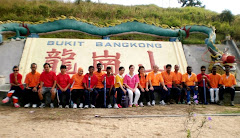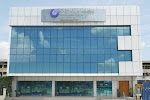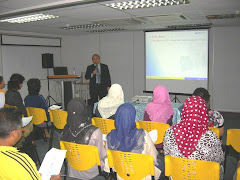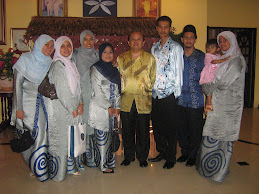 In her public lecture entitled "Shaping our future generation", at Soka Women's College, Soka University, Hachioji, Japan, Jeanne hoped to see the youth of the world embracing a mission or a cause whether caring for the environment, human rights or child protection and not limit their contributions to just their own country.
In her public lecture entitled "Shaping our future generation", at Soka Women's College, Soka University, Hachioji, Japan, Jeanne hoped to see the youth of the world embracing a mission or a cause whether caring for the environment, human rights or child protection and not limit their contributions to just their own country."As global citizens we must be concerned with what is happening around us such as a variety of humanitarian crisis arising from armed conflicts, natural disasters, climat change and also the financial crisis which continue to threaten the world community," said Jeanne.
The text of her lecture was faxed to Bernama here Wednesday.
Jeaane said volunteerism was an expression of people's willingness and capacity to freely help others to improve their society and bring significant benefits to individuals and communities by addressing specific needs.
Thus, she said, the passion and spirit of volunteerism should be ignited among students so that they could use their vigour and youthful enthusiasm to help humanity.
Jeanne cited as an example the establishment of the secreteriat of Caring Malaysia in 2008 with the key mission to inculcate the spirit of volunteerism among youth and to reach out to those in needs and together to develop a better the society.
She said by joining the secretariat, volunteers would get to know each other better, learn from one and another and work together for the benefit of society.
She said that through volunteering, a practice of people working on behalf of others without being motivated by financial or material gains could be promoted and this would improve the quality of life.
Abdullah Conferred Honorary Degree By Soka University
 Former prime minister Tun Abdullah Ahmad Badawi was conferred the Honorary Degree of Doctor of Honoris Causa from Soka University in Tokyo, Wednesday.
Former prime minister Tun Abdullah Ahmad Badawi was conferred the Honorary Degree of Doctor of Honoris Causa from Soka University in Tokyo, Wednesday.In his acceptance speech, the text of which was made available to Bernama, Abdullah expressed his gratitude to the President of Soka Gakai International Dr Daisaku Ikeda for the honour.
"It was my cherished ambition as a student in school as well as a student in university that I serve my country. When I graduated I had no hesitation in enrolling in the government's administrative and diplomatic service.
"When I matured as a civil servant as well as later when I embarked upon my political career, I was determined to contribute, in whatever modest way I could, to the betterment of not only the people of my country, but also to humanity at large," he said.
He said in his various capacities as minister and also prime minister, he was able to help enrich and develop young minds, strengthen Malaysia's capacity to defend itself and play a role in forging peace and stability in the region and around the world.
"If there is anything I am most grateful for, it is that I was able to further widen the democratic space in my country, improve its system of governance and delivery, and spark the modernisation and development of the rural economy through the development corridors that I introduced," he added.
Besides his blood ties with people from Japan, he said Malaysian people always admired the achievements of the Japanese particularly on how they managed to transform their country from the ashes of war to become the second largest economy of the world in a relatively short period of time.
"To emulate Japan, the Look East Policy was introduced. Our bilateral relations has expanded and deepened. Japan became Malaysia's top trading partner after neighbour Singapore. Japan was also among the top five investors in Malaysia in the last decade," he said.
Abdullah also mentioned that the Malaysian government had given a lot of emphasis on developing and distinguishing itself through its well-defined and advanced human capital development infrastructure.
"History has clearly shown that countries which invest heavily in education have progressed well ahead of those that do not," he added.
He noted that during his administration, he also introduced Islam Hadhari or civilsational Islam which he hoped would provide a blueprint and establish a balance in the pursuit of progress and enlightment.
-- BERNAMA






























No comments:
Post a Comment